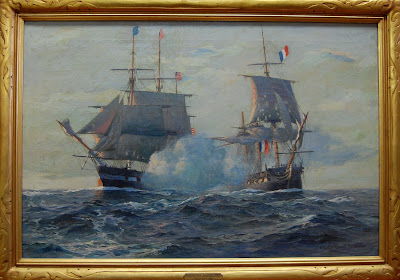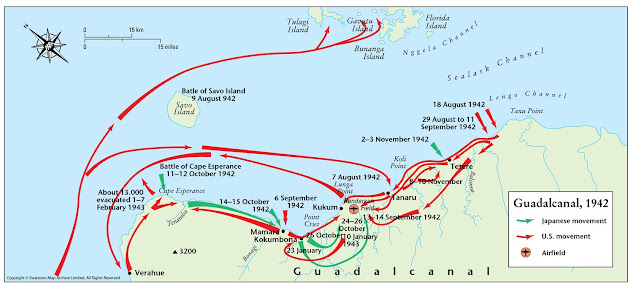Countdown to Nelson: Nelson's Patent Bridge for Boarding First-Rates
2
The Face of Nelson
opens at the Naval War College Museum in just two days! One of Nelson’s most famous
battle exploits involved the capture of two Spanish ships at the Battle of Cape
St. Vincent in 1797. In command of HMS Captain
(74 guns), Nelson found himself at the tail end of the British line when the
battle started. The fleet commander, Admiral Sir John Jervis, found that the
Spanish were split in to two groups and maneuvered his force in between them.
Having isolated them from each other, he then ordered his captains to follow
the lead of the flagship and come about to chase down the lead group of Spanish
ships.
At this point, the British fleet resembled a giant ‘u’. From
his station at the end of the line, Nelson realized that he would never get in
to battle if he dutifully followed the ship in front of him as Jervis
instructed. Nelson was not afraid to disobey orders when he saw an opportunity
to act on his own initiative. He decided to break away from the main fleet and
cut across the top of the ‘u’ to engage the Spanish before they could escape. After
an hour of exchanging broadsides with three of the largest enemy ships, Nelson
led a boarding party that captured San
Nicolas. The victors then captured San
Josef when she became entangled with San
Nicolas after sailing alongside to help. This incident became known
throughout the Royal Navy as "Nelson's Patent Bridge for Boarding
First-Rates".
 |
Nelson receiving the surrender of the San José
Engraving by Robert Cooper, 1800
After a painting by Daniel Orme
Anne S.K. Brown Military Collection, Brown University
|
Rob Doane
Curator, Naval War College Museum
Curator, Naval War College Museum


Comments
Post a Comment